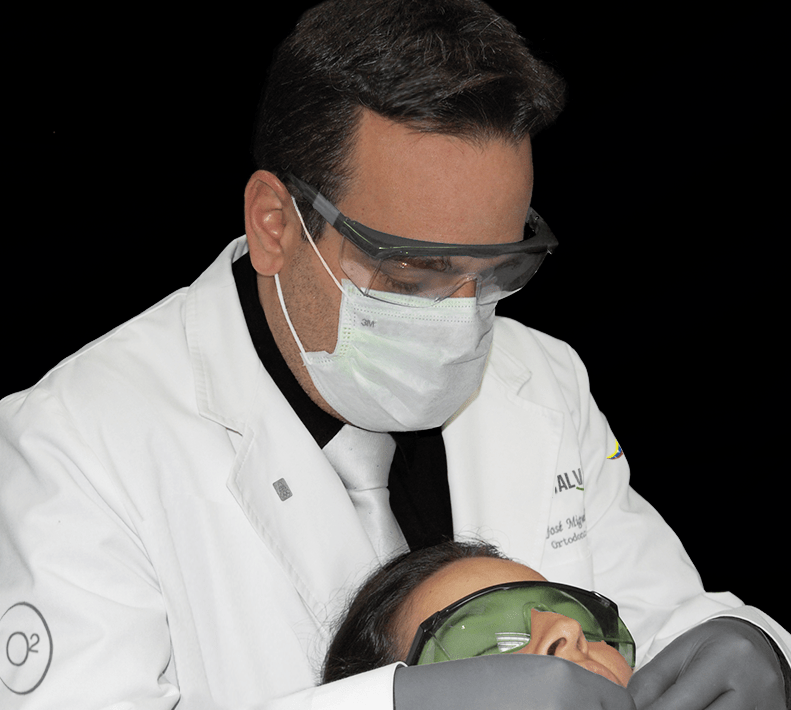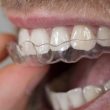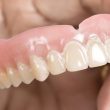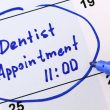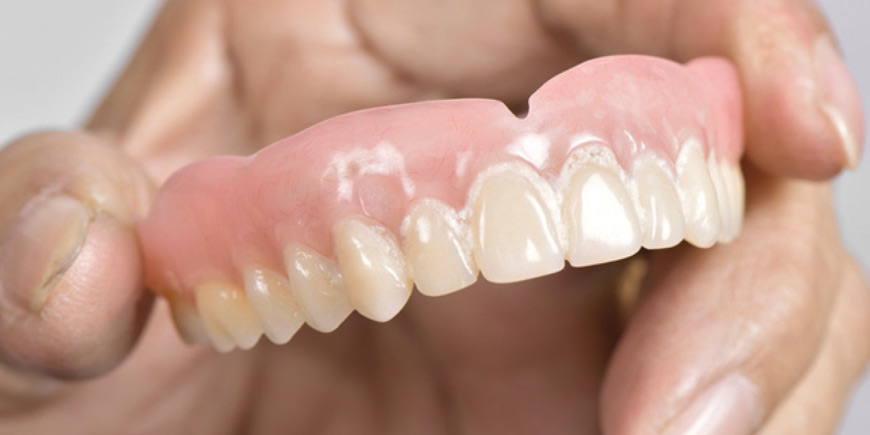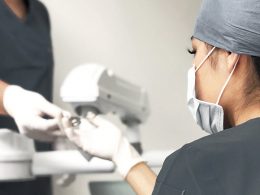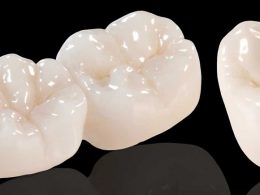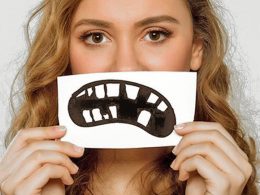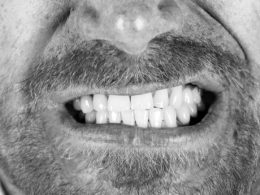Table of Contents
A denture is a removable replacement for missing teeth and surrounding tissues. Two types of dentures are available; complete and partial dentures. Complete dentures are used when all the teeth are missing, while partial dentures are used when some natural teeth remain.
Complete dentures can be either “conventional” or “immediate”. Made after the teeth have been removed and the gum tissue has begun to heal, a conventional denture is ready for placement in the mouth about 8 to 12 weeks after the teeth have been removed.
Unlike conventional dentures, immediate dentures are made in advance, and can be positioned as soon as the teeth are removed. As a result, the patient does not have to be without teeth during the healing period. However, bones and gums shrink over time, especially during the healing period following tooth removal. Therefore, a disadvantage of immediate dentures compared with conventional dentures, is that they require more adjustments to fit properly during the healing process and, generally, should only be considered a temporary solution, until conventional dentures can be made.
A removable partial denture usually consists of replacement teeth attached to a pink or gum-colored plastic base, which is sometimes connected by metal framework that holds the denture in place in the mouth. Partial dentures are used when one or more natural teeth remain in the upper or lower jaw.
Why Removable Dentures Are Not Highly Recommended?
In essence because they are currently the most obsolete, limiting oral rehabilitation devices and that are the furthest from the ideal prosthetic prototype. Below we list and detail each of their main disadvantages:
1- They Are Bulky and Uncomfortable
To hold on, they must extend far beyond the site of the teeth they are replacing, and must also be considerably thick to prevent breakage during chewing.
Removable partial dentures have one of the least rates of patient acceptance. European researchers recently reported in a study that eight in 10 patients reduced their wearing of dentures after 12 months, and the group decreased use in far greater numbers after four additional years.
2- They Move When Eating
The extent and direction of movement of removable dentures during function is influenced by the nature of the supporting structures and the design of the prosthesis. Rehabilitation of partially edentulous cases in the absence of distal abutments and of total edentulous, is notably troublesome for both the Prosthodontist and the patient.
However, the reality is that although the supporting tissues are favorable, the device is perfectly designed and fully complies with all the biomechanical stabilization and retention requirements; the prosthesis will always move when eating and chewing, especially with hard, fibrous and sticky foods.
3- They Decrease Chewing Efficiency
Patients wearing full dentures may have far less occlusal force. This is the result of denture instability and tooth loss.
Within the same timeframe, 9 out of 10 people who chewed food with natural teeth had far greater efficiency than denture-wearing patients. The latter also have ten times less chewing force and an approximate 40% decrease in their chewing capacity. Proof of this, and according to reports, is that up to 50% of patients chew more efficiently without their prosthesis.
4- They Cause Gastrointestinal Problems and Stomach Disorders
Many studies have found that the vast majority of denture wearers, due to poor chewing performance, eat far fewer fruits and vegetables, resulting in a lack of vitamin A in their nutrition. Also, that women who wore dentures used more drugs when contrasted with counterparts with greater chewing ability, including about 30 % using gastrointestinal treatments to aid with digestive needs.
Less high-fiber foods consumed by these patients could be a factor in the gastrointestinal issues in edentulous people, many of whom reported less-efficient chewing abilities. Likewise, less efficiently chewed foods were a major factor in causing digestive changes and fewer nutrients obtained among such patients. Several studies show that lessened dental function results in impaired swallowing and chewing abilities, resulting in bodily changes that may cause systemic sicknesses.
5- They Considerably Damage the Supporting Teeth and Oral Mucosa
There is no doubt from the evidence presented in the published literature that in the absence of good oral hygiene measures, a removable partial denture may promote the accumulation of the plaque, which may in turn, lead to periodontal inflammation. Furthermore, there also appears to be a higher risk of dental caries (particularly root caries) and tooth loss in removable partial denture wearers.
Oral mucosal injuries associated with the use of removable dentures may include acute or chronic reactions to the microbial plaque of the appliance, a reaction to the components of the denture base material or, more commonly, a traumatic injury of a mechanical nature. These lesions constitute a very heterogeneous group in terms of pathogenesis. They include subprosthetic stomatitis, angular cheilitis, traumatic ulcers, inflammatory fibrous hyperplasia, excessive flaccidity of the residual ridges and some oral carcinomas.
6- They Cause Bone Resorption
Alveolar ridge resorption is correlated with removable denture wearing. The resorption of the edentulous alveolar ridge is more extensive in full or partial removable denture wearers than in partial fixed or implant-support restorations wearers.
The period of edentulism is also related to alveolar ridge resorption, especially in the lower jaw. Alveolar bone loss in the edentulous jaw is a permanent process during the period of denture wearing. Patients with prolonged periods of edentulism, often lose more mandibular bone than those with a shorter period of the condition.
The prolonged use of this type of prosthesis completely eliminates the maxillary bone, and then it is necessary to resort to complex oral surgery techniques such as the placement of multiple bone grafts or zygomatic implants.
7- They Compromise Aesthetics and Appearance
Major connectors, minor connectors, direct retainers, indirect retainers, extensive acrylic bases, metal reinforcements and above all; retention hooks, are all necessary components in the vast majority of removable partial dentures, and that due to their volume, extension and nature, it is impossible to make them go unnoticed.
Even with the most advanced and conservative design, a frank smile will always expose some of these elements, and will reveal the absence of teeth.
8- They Difficult the Senses of Taste and Smell
Total dentures and almost all partial dentures, use the palate as the main support area. Clinical experience confirms that a removable upper denture often affects taste and smell by altering the natural flow of air between the oral and nasal cavities during chewing, as well as avoiding regular contact between palatal sensory receptors and taste samples.
9- They Limit Speech Activity
A foreign body in the oral cavity, such as a removable denture, inevitably interferes with speech. The changes they produce in the anatomical and functional characteristics of the oral cavity, affect the articulation of words and language.
It is reasonable to assume that subjects with removable partial dentures will always have more trouble producing sounds, because the prosthesis is bulky, takes up a lot of space, moves and interferes with the position of the tongue. The same subjects with fixed prostheses would probably have a much more precise phonation, due to their stability and limited extension.
10- They Have Short Longevity
As they are not stable and are constantly exposed to the resorption process of the jaw bone that supports them, the useful life of removable prostheses is quite short, compared to other restorative alternatives. In addition, partial dentures are structures dependent on each and every one of the teeth present in the dental arch, so any damage or loss of only one of them will require the manufacture of a new prosthesis.
On the other hand, numerous surveys reveal that more than 30% of patients with removable dentures have had to repeat them before 3 years due to falls, fractures and accidents that occurred when handling the appliance to insert, remove or clean it.
11- They Can Cause Emotional Depression
Approximately 77% of toothless people have a hard time accepting the loss of their teeth and the use of removable dentures. Many patients are severely affected by restriction in their social behaviors due to functional limitation and appearance. Those who have difficulty speaking fluently, eating normally and smiling fearlessly, are also more likely to experience depressive symptoms.
It is unquestionable that this type of prosthesis is always associated with aging and senility.
12- They Can Reduce Life Expectancy
Researchers at King’s College London found that malnutrition is a major problem faced by people whose bite force is reduced by 75% in the first 5 years of wearing dentures, and a shocking 97% after 15 years. Scientists say that people with dentures or few teeth have a hard time eating foods like fibrous fruits and vegetables, nuts and meat; essential nutrients for good nutrition.
The study’s conclusions show how important oral health is in preventing tooth loss which can cause nutritional deficiencies in later life. Likewise, they point out that avoiding the use of removable dentures and opting for a higher quality prosthetic alternative offers long-term benefits that not only considerably improve the patient’s quality of life, but also his longevity.
“From the Aesthetic, Biomechanical and Functional Points of View; Removable Dentures Always Take Last Place in Any Comparative Analysis of Dental Prosthesis”.
DENTAL TIP
So, Should Removable Dentures Never Be Used?
Despite its great limitations and disadvantages, there are three specific situations where we consider the use of a conventional removable denture appropriate:
- For Temporary Use Its use is very common and necessary as a provisional resource in the case of extensive fixed or on dental implants restorations. A removable prosthesis will be able to solve the aesthetic compromise while the structures are being elaborated in the laboratory or the osseointegration period, necessary to guarantee the anchorage of the implants, is completed.
- If Affordability Is a Limitation If financial constraints mean that this is the only alternative to having no teeth, removable dentures represent the most economical form of oral rehabilitation.
- In Cases of Surgical Contraindication If the patient does not have enough abutments to be able to perform a fixed prosthesis on natural teeth and suffers from a systemic disease that contraindicates the placement of dental implants, this type of prosthesis will be the only viable alternative.
Come to Venezuela and Forget About Removable Dentures!
Never forget that dental tourism is an extraordinary tool for accessing top-notch Dentistry.
DENTAL VIP trusts that quality of dental care should be affordable to all, no matter where you live. Hundreds of patients come to Venezuela for state-of-the-art medical and dental care every year, saving large amounts of money on health. Our rates are significantly lower than in any other Latin American country (up to 70% off), without it implying a decrease or compromise in the quality of service. Our Professional Staff is one of the best in the country and has extensive experience in dental and zygomatic implants, metal-free crowns and bridges, oral rehabilitation, smile design and cosmetic dentistry.
We guarantee that by using the services offered by DENTAL VIP, you will be cared for in modern facilities, with state-of-the-art equipment and under the standards of the most demanding international dental protocols.
Come for the price and stay for the quality! Contact us today through WhatsApp +58 414-9033547 or Email and we will let you know, according to your case, all the evaluations and basic studies required for your treatment.
